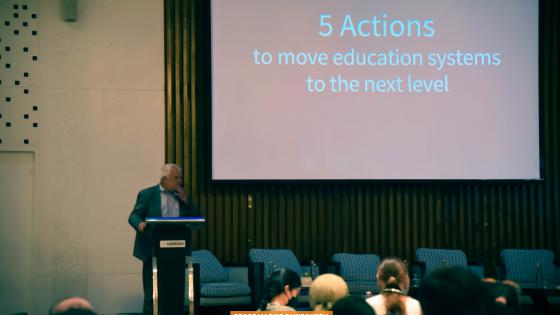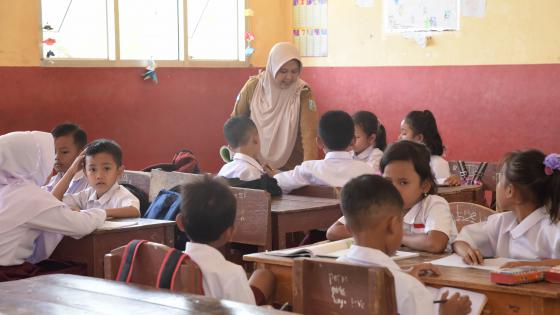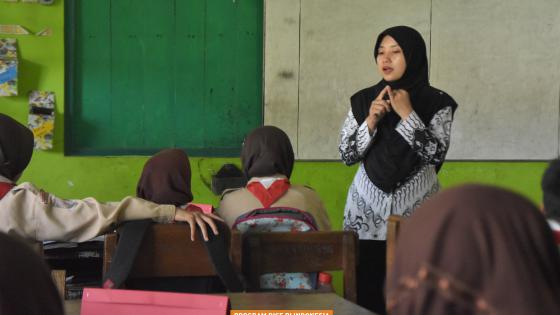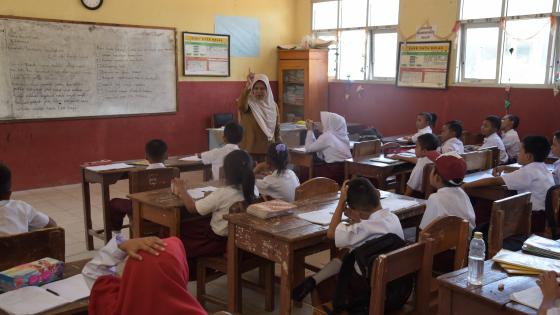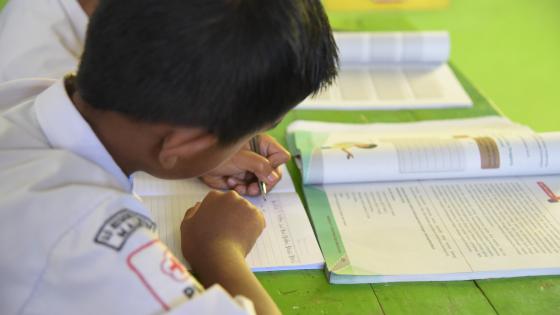Photo illustration: Novita Eka Syaputri
Data from the Ministry of Education and Culture shows the number of teachers in Indonesia is more than three million. Roughly 1.6 million teachers are civil servants, while the rest are on non-permanent employment—widely known as contract or honorary teachers.
How does the government recruit teachers, who are the key actors in the development of the nation’s intellectual life? What are the changes in teacher recruitment policies in the era of centralised government, and after Indonesia began decentralisation? Are there factors outside teacher qualification and competence that also influence teacher recruitment and deployment?
Additionally, for decades Indonesia has been experiencing teacher shortage problems, particularly in remote areas. Teacher recruitment administered by the government has yet to resolve the issue, which causes a gap in the number of teachers in urban and rural areas.
To learn more about the policies and practices of teacher recruitment, RISE conducted a qualitative study with the political economy approach to identify actors, motives, interests, and institutions affecting and shaping teacher recruitment process in Indonesia—the theme of the Reform Area 1 (A1) study.
RISE researchers meet with and interviewed dozens of teachers in the District of Kebumen and the City of Bukittinggi to gather information and evidence relevant to the practices of teacher recruitment and deployment. Some of these teachers’ stories are presented in a series of “Stories from Teachers in Kebumen and Bukittinggi”.


